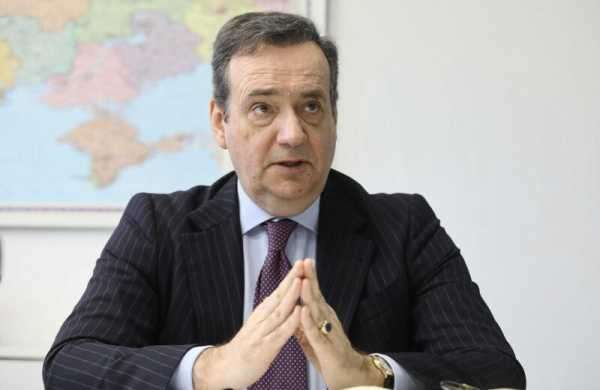Business Update – March 20: European Investment Bank ready to aid Ukraine amid its COVID-19 crisis

Latest news for today in Ukraine

With Ukraine already in talks with the International Monetary Fund (IMF) over the possibility of $50 billion in emergency financial aid, the European Investment Bank (EIB) has told the Kyiv Post that it too is ready to step up and help the country handle its COVID-19 crisis with emergency funds.
The European Union’s investment bank is already one of Ukraine’s largest investors and is preparing to mobilize more capital amid the economic fallout around coronavirus. “The EIB is ready to give rapid support to Ukraine… by increasing, or redirecting the existing loans towards medical supply,” an EIB spokesperson in Ukraine said, adding that other areas may need funding too.
The EIB is already in talks with the government and relevant ministries to see where it can best deploy its capital. “As one of the main financial partners of Ukraine we want to set out a coordinated response to counter the socio-economic impact of the COVID-19 outbreak. We are prepared to quickly adapt or increase existing loans to respond to the new needs caused by this crisis,” the EIB told the Kyiv Post.
In the EU, which is now the epicenter of the COVID-19 pandemic, the EIB is taking measures with co-investors to support the European economy. “We’ve proposed measures to be taken in cooperation with the European Commission and national partners in support of European companies, health expenditure, and the EU economy as a whole,” the bank told the Kyiv Post.
The bank says that Ukrainain transport infrastructure, its airlines and railways may need particular attention. “It is still unclear who will be the worst off… however private transportation businesses will be impacted the most. This is because state-owned and communal enterprises will always have support from the state or local budget. Road passenger transportation or aviation businesses need to rely exclusively on their financial capabilities in times like this.”
The aviation industry in Ukraine and Europe is being hit particularly hard, the EIB observes. “Ukrainian companies will face the same problems that carriers from every other country are. Total ban on aviation passenger transportation may be especially painful for the business.” Ukraine International Airlines has said that it expects a third of its Q1 2020 revenues to be written off. Airlines have played a pivotal role in evacuating stranded Ukrainians back to their homeland.
The EIB suggests 40 billion euros in emergency aid for the EU to cover bridging loans, credit repayment holidays and more measures to help with liquidity and tackle capital constraints. The European Central Bank has announced a separate 750 billion euro support package for the entire EU economy. “EIB investments will also seek to accelerate the medical response to this crisis, by increasing funding to companies researching the development of vaccines and treatments for COVID-19,” a spokesperson said.
Beyond the COVID-19 crisis, Jean-Erik de Zagon, who is head of the EIB in Ukraine, said that his bank is strongly committed to the country and working closely with the Ukrainian government on a daily basis. The country is a top priority for his bank and already has 6.4 billion euros invested here at the moment. “We strongly support this government,” he said in an interview with the Kyiv Post. “We have a very important role here… for the EU, Ukraine is clearly a priority… but you need to put money on the table, and I think that’s where the EIB is very strong – we are a large bank and we can finance large projects.”
The International Monetary Fund, meanwhile, is in emergency talks with Ukrainian ministers over possibly giving Ukraine $50 billion through its new emergency financing facilities – $10 billion of which could be interest free. New measures announced by the IMF will disburse financing quickly to low-income and emerging markets that are suffering from the coronavirus pandemic. The IMF has promoted its readiness to mobilize its $1 trillion overall lending capacity to fight the ongoing economic impacts of the global pandemic.
Some 600-700,000 small and medium sized businesses, educational institutions (employing some 3.5-4 million people) have stopped operation, experts say. The President of the Chamber of Commerce and Industry of Ukraine Gennady Chizhikov said in a statement: “Today, it’s important to save lives. But in today’s environment, it’s important to keep small businesses, too.”
A controversial agriculture and investment expert with ties to Russia has taken the reins of Ukraine’s economy ministry. Ihor Petrashko, a former executive at agricultural giant UkrLandFarming has replaced Tymofiy Mylovanov as the economy, trade and agriculture minister, while Ukraine’s economy enters one of its darkest hours.
Nova Poshta, the ATB supermarket and Rozetka online marketplace will jointly launch food delivery services. The Nova Poshta postal service, jointly with the Rozetka online store and ATB retail chain are testing the food delivery services, Interfax-Ukraine reported. Uber Eats and Glovo are already delivering for free. Nova Poshta said that it would be possible to choose sets of necessary products and things online on the Rozetka website. Orders will be formed in the stores of the ATB network. Nova Poshta will deliver the parcels.
Bolt and Uber taxi services will transport medical staff for free, the mayor of Kyiv has said. They agreed to carry medical staff to their working place free of charge and the mayor’s office organizes this process, Kyiv Mayor Vitali Klitschko said during a press briefing in Kyiv on Friday, as reported by Interfax-Ukraine.
Ukraine could save $5-6 billion on energy imports in 2020, the National Bank of Ukraine has said. Due to a 50-60% reduction in prices for energy products, which account for 20% of the country’s imports, NBU Deputy Governor Dmytro Sologub said in a briefing.